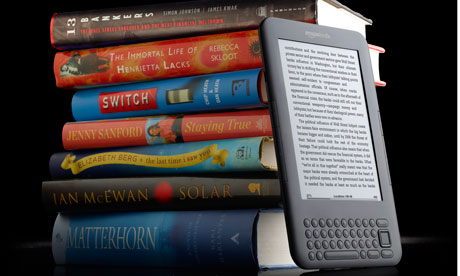
Last week, the US Justice Department filed suit against Apple and five major publishers alleging collusion in ebook prices and sales models. The debate centres on the "agency model", which allows publishers to set the price of their ebooks, instead of the retailer, but what's really going on is a shadow war between publishers and Amazon over the true value of books. The result is more confusion for readers and, ultimately, a threat to all reading.
Take the hardback edition of John Lanchester's new novel, Capital, warmly reviewed in these pages by Claire Tomalin. Capital weighs in at 592 pages and carries a cover price of £17.99. But hardly anyone pays that; Waterstones.com sells it for £10.79 and Amazon for £10.07. They even feature the RRP with a line scored through it, just to show what you're saving. And then there's the ebook, where the confusion sets in. Capital isn't subject to the agency model and its price fluctuates wildly: Waterstones will sell it to you for £10.38 (a mere 41p less for a weightless digital file than a hefty stack of paper), while Amazon's Kindle edition is just £5.66.
Those untidy numbers should tell you that something is going on here that has more to do with algorithmic computation than real costs and measures. Capital is a novel about money, which really means value: what it is, how it moves and to whom it accrues. Amazon, a retail business for which the cost of trading ebooks is virtually zero, insists on weighting them far lower than a hardback, which needs warehouse space, picking, packing, shipping and careful handling (yet it also retains up to 65% of the ebook's price).
Readers have inherited this illusion. But publishers know that the actual production cost of a single hardback, in printing and binding, is around £1 and that the true value of a book is in the years spent writing it and the months of preparation for publication. Ebooks offer many advantages in accessibility, availability and sociability, but if their true value is eroded much further, the most important advantage, that of quality, is unlikely to last.

